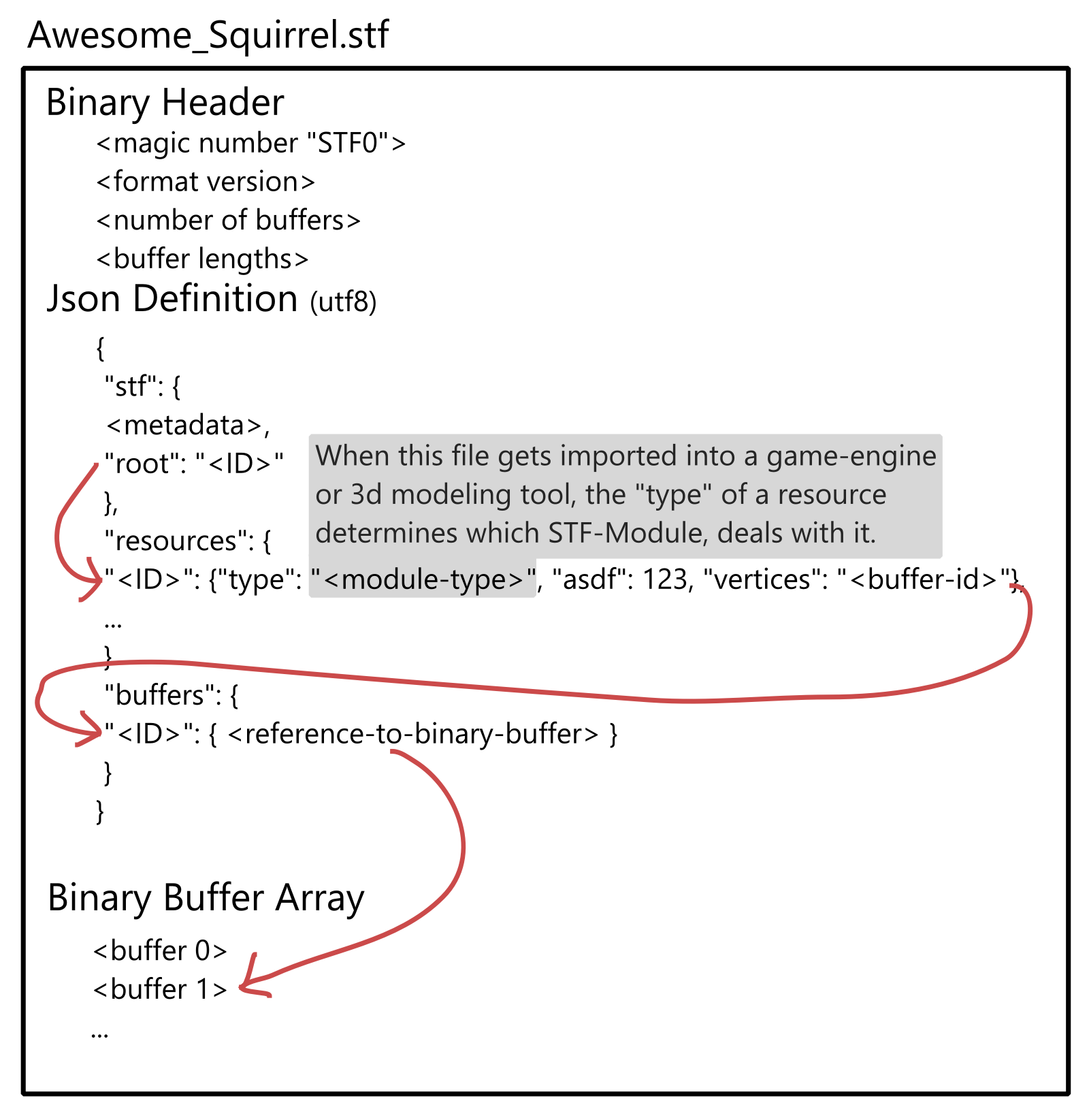STF - Squirrel Transfer Format¶
A modular file-format for 3D assets Intended for (not only) games-development use-cases.
Warning
Please note, STF is a work in progress and likely to change.
Install STF support for:
Try to import this example model!
Relevant future implementation targets include: 3dsMax, Unreal Engine, Maya, Bevy, BabylonJs, …
Advantages¶
Artist Friendly
Import & export is quick and you don’t have to fiddle with unnecessary settings to avoid breakage.
All information in STF and it’s core-modules is normalized and doesn’t require any knowledge about the file by the user.Versatile
STF stores original information as well as baked results. I.e. STF contains the original topology of meshes, including n-gons, but also the triangulation.
This allows for STF files to be used for further editing and for import into game-engine editors.
Despite that, file-sizes remain similar and are sometimes even lower compared to other formats.Easy to Develop
STF’s modular nature enables high encapsulation in the source-code and easy collaboration in the development of STF implementations. A functioning implementation that handles some core resource-types can be usually developed in a day or two.
Third parties can easily develop and distribute custom (perhaps application specific) modules.
Concept¶
STF by itself is merely a shell format. Its implementations provide a framework for different modules to parse and serialize resources.
Resources are stored as Json-objects, identified by a unique ID. Resources can reference binary buffers and each other.
A few modules, including but not limited to stf.prefab, stf.mesh, stf.material or stf.image, are provided by default.
Additional modules can be easily implemented by third parties. Each STF implementation must provide an easy and convenient way to hot-load module-plugins.
Anatomy of an STF file
